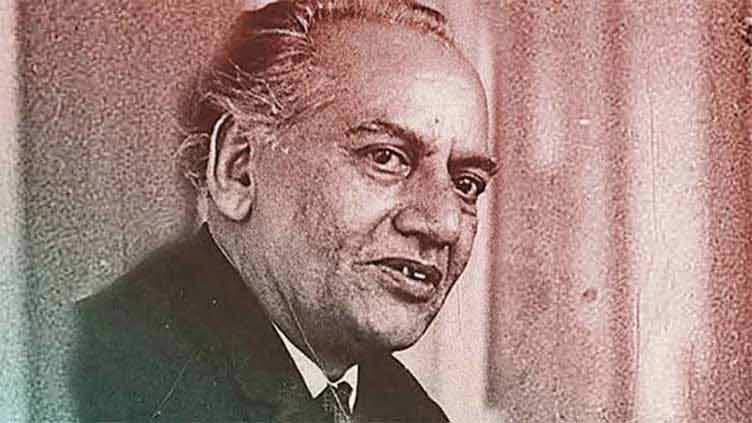Faiz Ahmad Faiz - A bouquet of fond memories

Entertainment
Nov 20, 2024 marks the 40th death anniversary of iconic poet Faiz Ahmad Faiz
LAHORE (Dunya News) - Nov 20, 2024 marks the 40th death anniversary of iconic poet Faiz Ahmad Faiz.
A legion of admirers pays glowing tributes to the revered figure on special occasions.
Dunya News pays homage to country’s first-generation leading luminary and rights champion by presenting a compilation of literary gems – both by him and his contemporaries.
The Voice of a Courageous Heart - I.A. Rehman
In ‘The Voice of a Courageous Heart’ penned in Jan 13, 1949, I.A. Rehman paid a glowing tribute to Faiz Ahmad Faiz while highlighting his days in incarceration.
Mr Rehman writes: “… But the heart of the poet, alive, vigorously pulsating could not be stilled by the prison walls, radiating a dark night of dampness. The day’s quiet, stifling stillness placed no seal of silence on the songs of his lips. Through the thick walls of the prison, passionately, and vehemently sounded the rousing song of his brave heart, laden with love for people, for life and for his native land.

“And the rustling of the wings of his song was heard across the lands of Pakistan and India and millions of human hearts responded, in the struggle between the darkness of reaction and the light of the fighting revolutionary poetry – poetry won.”
He wanted to throw all weapons into sea – Zafar Iqbal Mirza
The late Zafar Iqbal Mirza, in his famous Lahori column, remembered Faiz. Aptly titled ‘He wanted to throw all weapons into sea’, the column shares an incident in these words.
Also Read: Death anniversary of iconic poet Faiz Ahmad Faiz today
“Daman, in hospital after a stroke, insisted that he should be taken to the Faiz residence, when told that his friend had died. And he cried like a baby. A baby born on Jan 1, 1900. The last I heard, it was touch and go and a doctor asked me to pray for Daman. How this ungrateful city has treated Ustad, it loves mausoleums, not men.”
INTERVIEW – Tahir Mirza
Faiz was interviewed on his 65th birthday by Tahir Mirza for Viewpoint in 1976. When Tahir Mirza asked about the most creative period of his life, Faiz replied: “I think the period in Amritsar and during the two incarcerations. But one cannot forget the period with the Pakistan Times… everyday’s paper was a new creation, as good as a poem.”
FAIZ – A PROLIFIC WRITER
Faiz was not only a great poet, he was also a prolific prose writer and the best examples of his literary craft can be found in the editorials he penned for The Pakistan Times in the fledgling years of the country.
His patriotism, respect for the Quaid-i-Azam and wish to see freedom and other ideals for the people in the new homeland are best articulated in some of the editorials.
To God we return
Paying tribute to the founder of the nation, he penned an editorial ‘To God we return’ on Sept 13, 1948.

“The Quaid-i-Azam has passed away, after long years of toil and sacrifice and service in the cause of his people, his frail body has at last been gathered undo rest and his soul called back to the abode of the eternally blessed. No name in the history of Indian Muslims has been loved and acclaimed as the name Muhammad Ali Jinnah.
No man in living memory evoked such unquestioned loyalty, such unqualified devotion, such unbounded faith, for the one-time oppressed, rejected and broken Muslim nation, Muhammad Ali Jinnah was much more than a political leader.
Read More: Let's celebrate legacy of hope and peace
“He was the father, the brother, the friend and the counsellor, the guide and confidant, the comrade and leader all combined into one. Millions hopefully whispered his name in hours of anguish and blessed him silently in moments of joy.”
Progress of a dream
In ‘Progress of a dream’ (March 23, 1949), he deplored: “The dream is as yet unfulfilled. The division has come but neither half is as yet completely at peace, whether with itself or with its neighbour. Internal harmony was made impossible because neither side chalked out or planned a pattern of free and secure existence for the minorities left in its care, a pattern similar to the one that each majority has managed to obtain for itself. The fair visage of freedom, therefore, was daubed and besmeared with blood and bitter tears.”


